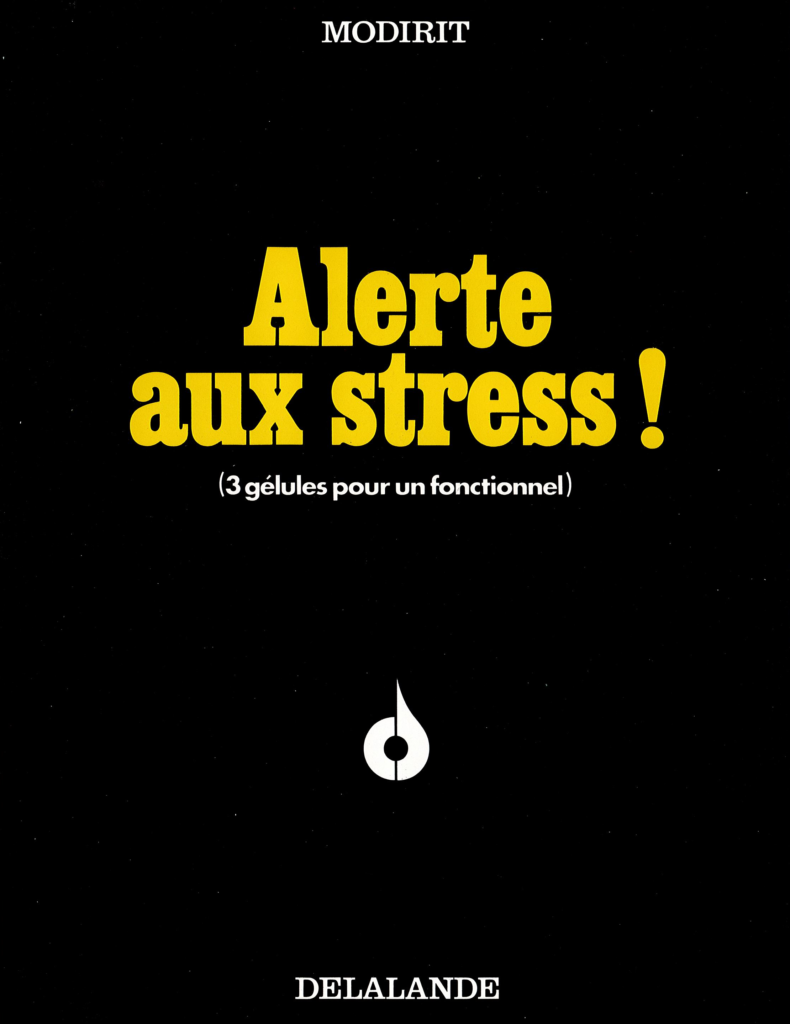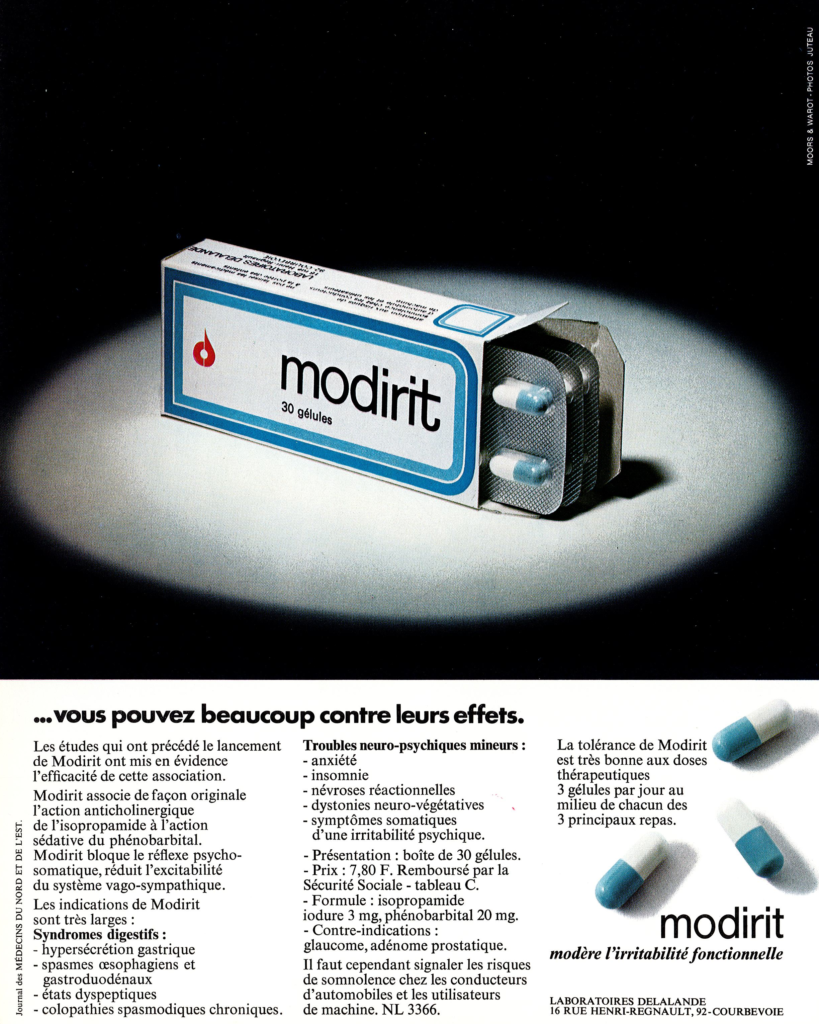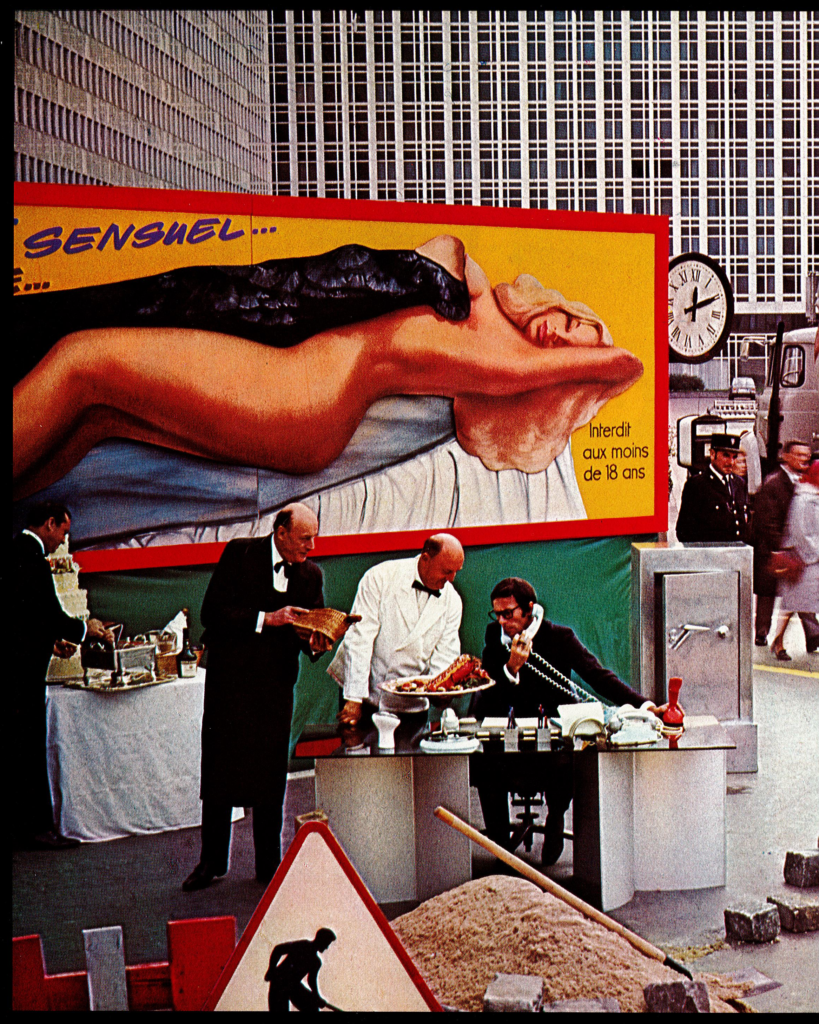
Isopropamide iodide is a long-acting anticholinergic quaternary ammonium drug, essentially used as an inhibitor of gastric secretion. The compound affects the secretory process, irrespective of any effect on gastric emptying, and modulates the gastrointestinal motility. Isopropamide showed an additive effect with phenobarbital, an old long-acting barbiturate widely used as a sedative agent in the 1970-80s. Phenobarbital is a drug primarily acting on the central nervous system (it has been used to treat epilepsy crisis [status epilepticus] and many other pathologies, including the management of alcohol withdrawal for example). Here it was used to reduce stress, to relieve insomnia and mood of apprehensiveness, mental irritability, autonomic dysfunctions, neurotic reactions, and anxiety in general. Today, phenobarbital has mostly been replaced with other drugs that offer less harmful side effects (rare instances of severe liver injury have occurred with phenobarbital).
The combination of phenobarbital and isopropamide iodide was effective in suppressing acid hypersecretion, notably in patients with duodenal ulcers. The addition of the anticholinergic drug prolonged the duration of inhibition of acid secretion. The drug was prescribed to moderate irritability and to reduce stress, notably for active professionals facing a variety of stressful situations daily and/or with a digestive pathology.
The communication around the usefulness and efficacy of the drug was centered on the daily stress in large cities. The two illustrations underlined the diversity of activities, road works and noise, cars and police control, excess of foods and beverages, telephone, publicity exciting tensions, circulation of people, road traffic, etc. An old style typical of the 1970s but a situation that remains very relevant today. “Stress Alert” was the slogan to accompany Modirit. The drug has disappeared, but neither the problem, nor the medical need.





